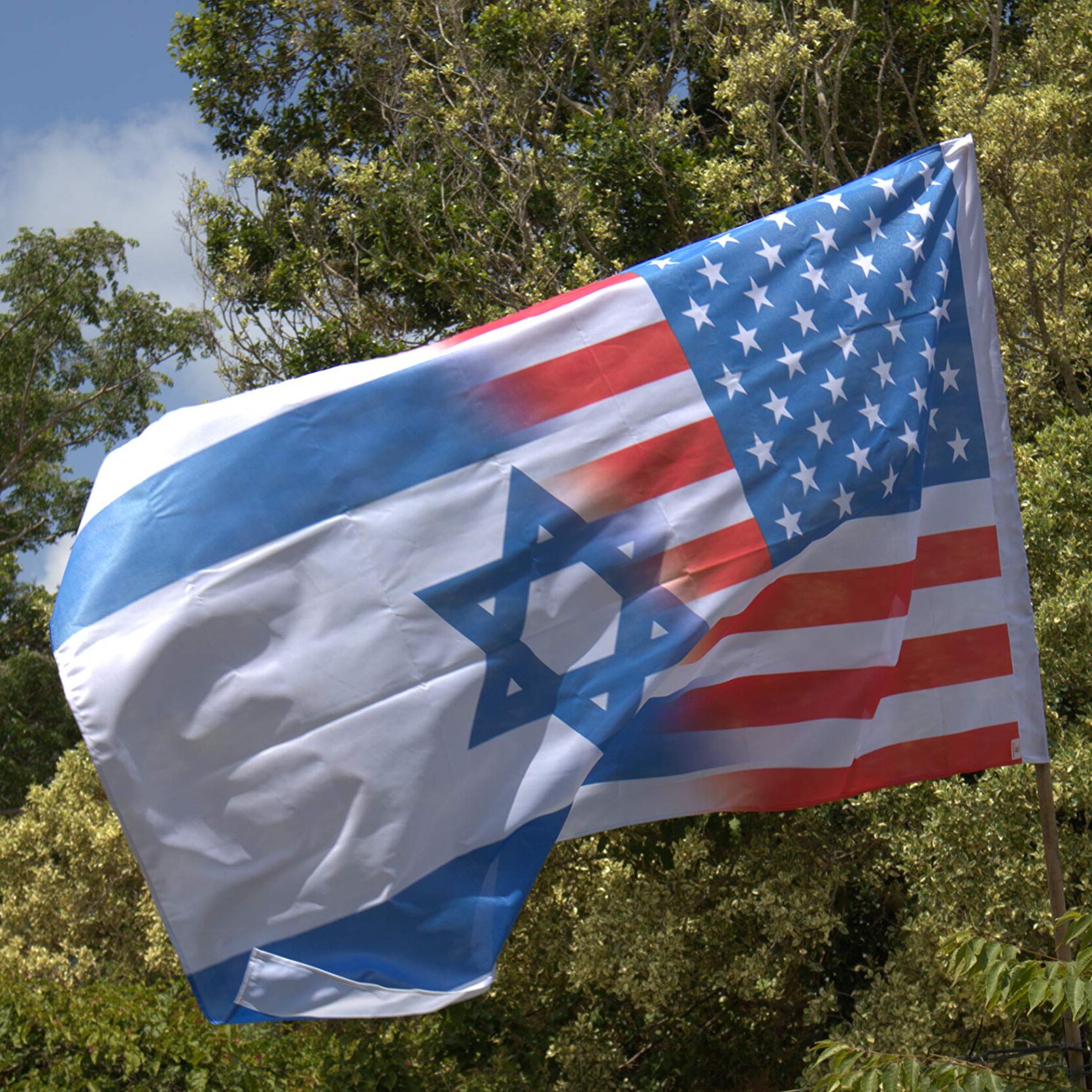I was thinking, growing up, my world was a tapestry of hyphenated identities. There was my Russian-American friend, my Italian-American neighbor, my Chinese-American classmate, my Polish-American cousin, and my African-American neighbor. Each wore their heritage proudly, their identities anchored in the lands from which their ancestors came.
But I was simply Jewish-American. And increasingly, I’ve wondered: why? What is Jewish social group identity?
Before dismissing this question, consider it with me for a moment.
The Logic of Labels
Imagine if Jewish Americans were known as Israeli-Americans, or American-Israelis. After all, we are from this specific place called Israel. We are all members of the People of Israel, the Nation of Israel. It was a historical rupture that took us from Israel—or rather, forced us out of Israel. If our ancestors all came from this particular piece of land called Israel, then aren’t we Israeli-American by heritage and identity? Just like my Russian-American, African-American, and Italian-American friends?

This isn’t merely semantic gymnastics. Words shape perception, and perception shapes reality. The question becomes urgent when we witness the sometimes painful divisions within the Jewish world—diaspora Jews versus Israeli Jews, Jerusalem versus what some still call Babylon. My years working in U.S.-Israel education and relations have shown me that the current framework creates unnecessary distance. Why should Israel belong only to those who live in the land? Doesn’t it belong to you too?
From Exile to Return
The term Jew—or Yehudi—means to come from the Kingdom of Judah. Judah was the son of Israel, himself previously known as Jacob, our third patriarch after Abraham and Isaac. Through historical devastation, dispersion, and exile, the term Jew became the dominant identifier. It became an exilic label for the scattered children of Israel throughout the world.
But in 1948, something changed. The Jew returned home—returned to Israel. The exilic status technically ended. Yet we still call ourselves Jews, carrying forward a label born in displacement rather than one rooted in belonging.
Today, as antisemitism surges globally and questions of Jewish identity become more complex and contested, this distinction matters more than ever. When university students face hostile environments, when communities grapple with what it means to be connected to Israel, when families debate their relationship to a homeland half a world away—these aren’t abstract philosophical questions. They’re lived realities affecting how young Jews understand themselves.
The Weight of a Name
The word Israel—Yisra-El—carries tremendous weight. It resonates through millennia of biblical, rabbinic, philosophical, and poetic literature. It holds cultural and theological depth that shapes our very existence. If you don’t know the story of Jacob wrestling with Gd and humanity, you don’t fully understand Jewish perseverance despite history.
In the darkness before dawn, alone by the banks of the Jabbok River, Jacob wrestled with a mysterious figure until daybreak. This ancient story, recorded in the book of Beresheet (Genesis), contains within it the DNA of Jewish existence—not the wrestling itself, but what the wrestling produced. Jacob emerged from that encounter fundamentally transformed, bearing both a new name and a permanent limp. He was no longer Jacob the supplanter, but Israel—the one who struggles with God and humanity and prevails. “Said he, ‘Your name shall no longer be Jacob, but Isra-el, for you have striven with beings divine and human, and have prevailed.'” – Genesis 32:29
Becoming Israel
This transformation from Jacob to Israel represents more than a personal name change; it establishes the existential formula that has defined Jewish identity ever since. To be Israel—whether as an individual, a people, or a modern nation-state—is to embrace struggle not as an unfortunate circumstance but as the very mechanism through which purpose is discovered, meaning is revealed, and identity is forged.
The theological, and perhaps earthly, essence of Israel’s presence in this world is the struggle with Gd and with humanity. This is powerful. I believe this is the formula of our people—our approach to challenging divinity and wrestling with life’s most difficult questions, our love and compassion for humanity that frames our struggle with the world, our desire to repair what is broken, our pursuit of justice and all that is good. We don’t simply accept things as they are just because everyone else does. Like salmon swimming upstream, we move against the current.
A Nation, Not Just a Religion
This isn’t about diminishing the religious or cultural aspects of Jewish identity. Rather, it’s about recognizing what many have forgotten: being Jewish is being connected to a nation, a land, a people. The religious and cultural dimensions are expressions of that national identity—not its totality. Similar to Italian-Americans who may not speak Italian or perhaps never visited Italy yet still identify with their ancestral homeland, or Irish-Americans who’ve never set foot in Dublin but feel connected to Ireland, the national component is primary.
In an era when Jewish identity is increasingly questioned—when some ask whether anti-Zionism is antisemitism, when Jewish students must defend their connection to Israel, when families debate whether their children should visit their ancestral homeland—the label Israeli-American could provide clarity. It would make explicit what has always been true: Jews are a people indigenous to Israel, regardless of where they currently live.
What Could Be
I believe words and labels influence perception and reality. So what could the current state of the Jews look like if we embraced this perspective? I think it could be more unified, more grounded, more confident than we’ve seen in generations.
When a Jewish student at Columbia or UCLA faces hostility, they would understand themselves not as representing a religion but as members of a nation with an ancestral homeland—just like their Korean-American, Mexican-American, or Nigerian-American peers. When diaspora communities debate their relationship with Israel, they would recognize it’s not about supporting a foreign country but about connecting with their own national homeland.
The Reframing
This reframing might ease tensions between Israeli Jews and diaspora Jews. We would all be Israeli—some living in the homeland, others in the diaspora, but all part of the same nation. The artificial divide would dissolve. Your connection to Israel wouldn’t be measured by how many times you’ve visited or whether you plan to make aliyah. It would be inherent in your identity.
Think about the power of this shift for the next generation. Young Jews struggling with their identity would have a clearer framework—one that parallels their peers’ ethnic identities while honoring thousands of years of history and the miraculous fact that after 2,000 years of exile, the nation returned to its land.
Just Imagine
I’m not suggesting we abandon the term Jew or the rich religious and cultural traditions it encompasses. I’m suggesting we reclaim our national identity in a way that resonates with how identity works in the modern world—especially in multicultural societies like the United States.
What if, when filling out forms or introducing ourselves, we could say Israeli-American with the same natural ease that others say Irish-American or Chinese-American? What if our children grew up understanding that their Jewish identity isn’t just about religion or culture—it’s about being part of a nation with a homeland, just like their friends from other backgrounds?
So just imagine: You, me, we are all Israeli.

